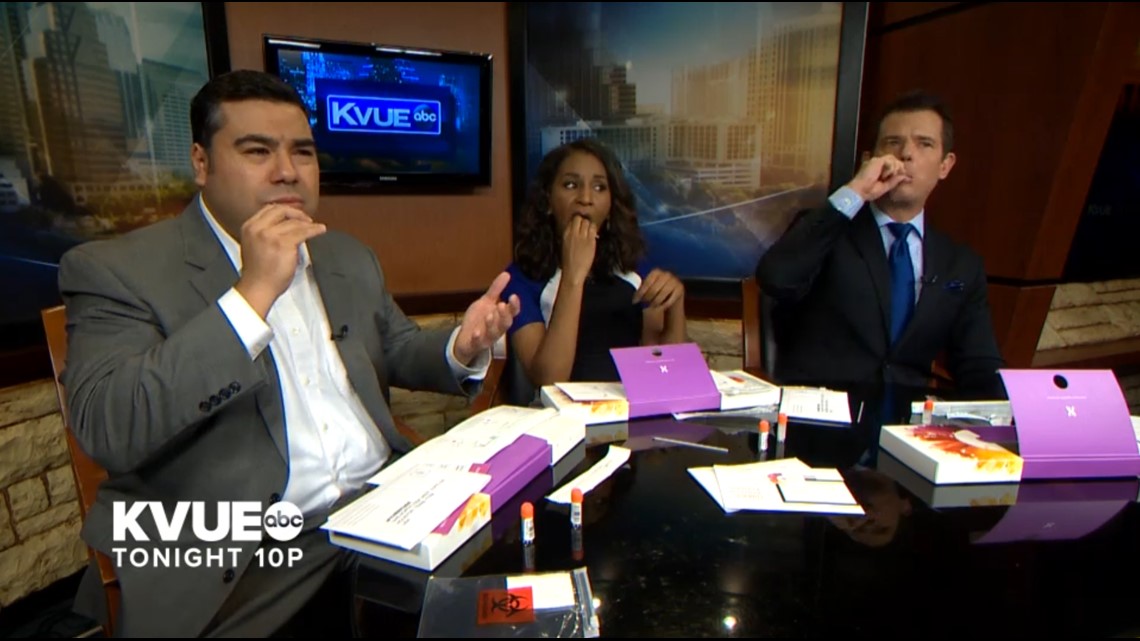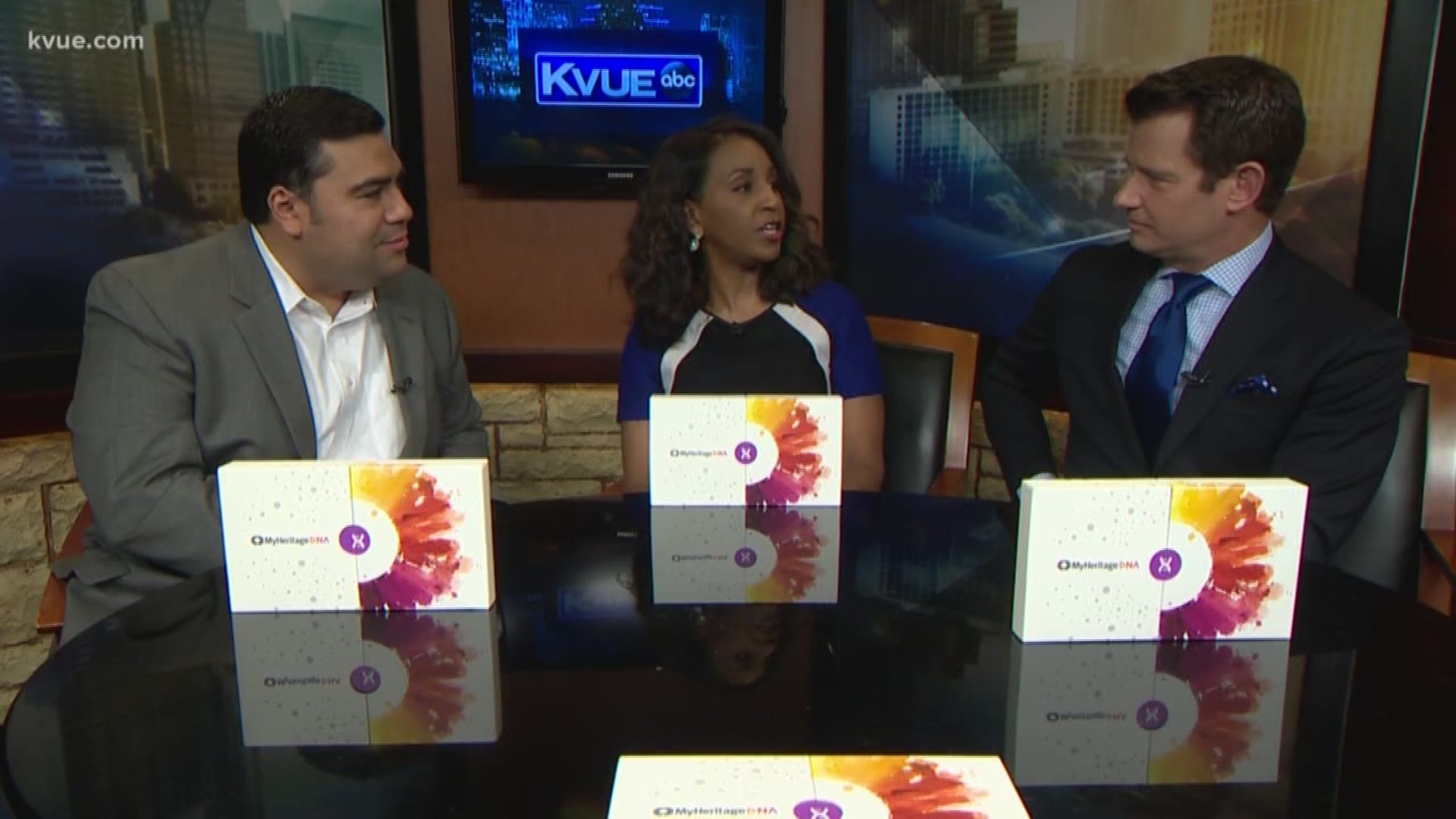AUSTIN — We all start out the same, drifting in a pool of possibility. Nothing in our lives is pre-determined -- except our genetics.
We've all been asked, "Who are you? What are you? Where do you come from?" Those are simple questions with complicated answers.
Can a pre-packaged test like the one from My Heritage -- a company that provides DNA tests -- really shed more light on your ethnic makeup? The KVUE Nightbeat team decided to try and find out.


RELATED:
"I would get asked a lot, 'Where did you come from?'," said KVUE Chief Meteorologist Albert Ramon. "What part of Mexico did your family come from?"
KVUE anchor Mike Rush said he's pretty sure about where his ancestors are from and what they were up to.
"I know that I come from a long line of horse thieves and bank robbers," Rush said. "That's a joke... as far as I know."
KVUE anchor Quita Culpepper knows the origins of both sides of her family, but wants to take a closer look.
"While Mike comes from horse thieves and bank robbers, I come from preachers and teachers," Culpepper said. "I'm African-American, American Indian, white. Like I said, I'm just a big ball of Culpepper cookie dough."
For the best results when taking the DNA test, don't eat, drink or chew gum before starting. Begin by swabbing the inside of your cheeks for one minute. Then, pop the swabs into the tubes, send them off to the company and wait six weeks.
It's a quest for answers that hundreds of thousands have done over the past few years, including University of Texas Associate Professor of Innovative Biology Steve Phelps.
"The analysis of DNA has just become so inexpensive and so the tools for that has just continued to grow," Phelps said.
As an expert in the genetic field, Phelps decided to take a test from 23 and Me. He said these tests sometimes provide answers you'd never expect and his test certainly did.
"I found two second cousins through 23 and Me. So they're both somewhat distant relatives, but both of them had been given up for adoption. One had been abandoned as a child," Phelps said. "It wasn't what I was expecting and I knew the tests had the power to do that, but it didn't occur to me that it was a relatively common experience."
When KVUE get the My Heritage tests back, Albert's results weren't exactly what he expected.
"No big surprise, 60 percent Central American, but two surprises for me: 11 percent Italian and nearly 6 percent South Asian," Ramon said. "Hmmm, didn't see that coming!"
After looking at his results, Mike felt the same way.
"Mostly Eastern European, not a big surprise. I said my mom is Czech and I had a grandfather who is Russian. There's that area. I thought the Rush's were English, but that's only about 5 percent," Rush said. "And look -- 39 percent Scandinavian, which would explain my muscular viking like appearance."
There were also a few revelations in store for Quita that she never would have guessed.
"The Nigerian, Sierra Leonean, Kenyan, came as no surprise. The English? Very nice touch," Culpepper said. "But the Italian and the Greek? That was definitely something unexpected. And there's hardly any American Indian DNA in my background at all! That's a big surprise!"
When you send in your DNA to one of these testing companies, it's compared to samples from a database of people around the world who lived in a certain area for generations.
"When you compare the genomes of any two people, they're almost identical," Dr. Phelps said.
Phelps added that the DNA companies don't look at the whole genome, but only sequence an extremely small part. The way each company analyzes the genes leaves room for interpretation.
That's why in some cases, it's hard to pinpoint exactly what region your ancestors came from. Therefore, the companies end up trying to make an educated guess.
"You're sharing that information about yourself, but you're also sharing it about your family and that's just something people should consider when they do it," Dr. Phelps said.
So while digging deeper into your ancestry may be an adventure that can leave you excited -- or heartbroken -- in the end, DNA is just a small piece of what makes you... you.

